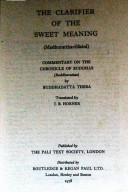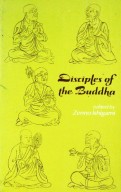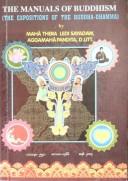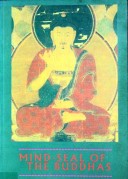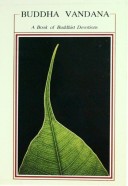Tìm Sách
Sách tiếng Anh-English >> On Religions
Thông tin tra cứu
- Tên sách : On Religions
- Tác giả : K. Marx & F. Engels
- Dịch giả :
- Ngôn ngữ : Anh
- Số trang : 380
- Nhà xuất bản : Foreign Languages Publishing House-Moscow
- Năm xuất bản : 1957
- Phân loại : Sách tiếng Anh-English
- MCB : 12010000005995
- OPAC :
- Tóm tắt :
FOREWORD TO THE RUSSIAN EDITION
The present collection includes works in which Marx and Engels expound their views on the essence and origin of religion and its role in class society; these works lay the theoretical foundations of proletarian, Marxist atheism. The world outlook founded by Marx and Engels is based on the objective laws of the development of nature and society. It rests on facts provided by science and is radically opposed to religion.
In the foreword to his doctor’s thesis The Difference Between the Natural Philosophy of Democritus and the Natural Philosophy of Epicurus, with which the present volume begins, Marx stresses the incompatibility of Epicurus’s materialistic philosophy with religion. In The Holy Family or A Critique of Critical Criticism, extracts from which are given in this collection, Marx and Engels show the great role of the French 18th-century materialists in the struggle against the reactionary feudal and religious outlook and disclose the relation between atheist propaganda on the one hand, the development of materialist philosophy and the achievements of natural sciences on the other. Marx and Engels show that atheism is typical of the progressive classes, that the English and French materialist atheists were the ideologists of the rising bourgeoisie. But no sooner had the bourgeoisie achieved domination and the class antagonisms between the proletariat and the bourgeoisie become acute than the bourgeoisie renounced its former free-thinking and began to make use of religion as an opiate for the popular masses. Engels gave a tangible and vivid explanation of this in the introduction to the English edition of Socialism, Utopian and Scientific, which is also to be found in the present collection.
Stressing the services of the previous materialistic and atheistic propaganda (the English and French 17th- and 18th-century materialists, L. Feuerbach and others), the founders of Marxism at the same time criticized the half- and-half attitude, the inconsistency and the class limitation of bourgeois atheism, its passivity and contemplativeness, its inability to expose the social roots of religion.
Marxism alone was able completely to reveal the essence of religion by proving that it is nothing but “the fantastic reflection in men’s minds of those external forces which control their daily life, a reflection in which the terrestrial forces assume the form of supernatural forces.”
In Capital, Anti-Dũhring, Ludwig Feuerbach and other works Marx and Engels reveal the roots of religion, proving that whereas in the earliest stages of human development religious belief arose from primitive man’s helplessness in the struggle with the forces of nature, under antagonistic, class society the social oppression of the working masses and their apparent helplessness in the struggle against their exploiters give birth to and foster religion, the belief in a better life hereafter, the alleged reward for sufferings on earth.
The extracts from Marx’s and Engel’s works German Ideology, The Communism of “Rheinischer Beobachter” and The Manifesto of the Communist Party describe religion as one of the forms of social consciousness, one of the elements of the superstructure in class society. The founders of Marxism reveal how religion depends on the development of the social relations, on the class structure of society; they reveal the interest the exploiting classes have in fostering religion as a means of blinding and curbing the popular masses. “Religion is the opium of the people,” Marx wrote in 1844. This saying has become the cornerstone of the whole Marxist outlook on religion.
Engels’s Bruno Bauer and Early Christianity, The Book of Revelation and On the History of Early Christianity throw light on the historic conditions of the social, political and ideological struggle during the decline of the Roman Empire, which determined the emergence of Christianity. These articles show clearly and convincingly that Christianity arose as the outlook of utterly despairing people after the numerous revolts of slaves, indigent people and enslaved nationalities against the yoke of the Roman Empire had been drowned in blood.
In the chapters and extracts from Dialectics of Nature Engels tangibly discloses the uninterrupted struggle between the scientific and the religious outlooks and shows how religion hindered the progress of science; the history of religion is the history of the fight against the development of scientific thought. The Church persecuted the greatest scientists with blind cruelty, torturing them, burning them at the stake, forbidding or destroying their works. The Catholic Church, whose instrument was the Inquisition, was particularly zealous in this respect. For centuries the Church played an extremely reactionary role and fought pitilessly against the scientific conception of the world and against the democratic and socialist movement. But the development of natural science inevitably caused more and more breaches in the religious and idealistic outlook. That is why the founders of Marxism considered scientific and materialist propaganda as the most powerful weapon in the fight against religion.
Marx and Engels most resolutely denounced the attempts of the anarchists and Blanquists, Dũhring and others to use coercive methods against religion (see Anti-Dũhring and Emigrant Literature, of which this volume contains extracts). They proved that the prohibition and persecution of religion can only intensify religious feeling. On the other hand” Marxism, contrary to bourgeois atheism with its abstract ideological propaganda and its narrow culturalism, shows that religion cannot be eliminated until the social and political conditions which foster it are abolished. In the revolutionary fight for their economic and political emancipation tile working people -free themselves from religious views and superstitions. This is promoted by educating them in the materialist outlook. The founders of Marxism called on the proletarian party leaders to spread among the workers the best works of materialist literature and the achievements of natural and social sciences.
The correctness of the Marxist-Leninist concept of the ways of overcoming religious views has been fully corroborated by the experience of the Soviet socialist state. As a result of the victory of .socialism, the abolition of the exploiting classes and national discord, and the raising of the cultural level in the U.S.S.R., the social and ideological roots of religion have been torn out for ever; the majority of the population has long been free from religious prejudices. But there are still remnants of religious outlooks in some Soviet people. In these conditions great importance attaches to the directions given by the classics of Marxism that the struggle against religion must not be pursued by administrative interference in the affairs of religious people but by profound and systematic scientific atheist propaganda.
The Communist Party, guided by Marxism-Leninism and the dialectical and materialistic outlook, considers it its duty to promote by all means the development of natural, technical and social sciences. These help man to deepen his knowledge of the objective laws of nature and society and to harness the forces of nature in the service of society. That is why the Party considers it its direct obligation to wage a systematic ideological struggle against the unscientific religious outlook which clouds man’s consciousness, dooms him to passivity and fetters his creative energy and initiative. The Party ceaselessly reminds us that scientific atheist propaganda must be based on popular explanation of the achievements in astronomy, biology, physiology, physics, chemistry and other sciences which vindicate the materialist conception of nature and society.
All the material contained in this collection has been previously published in the Works of Marx and Engels and other publications of the Institute of Marxism-Leninism. The texts included are the Institute’s latest editions. All the material has been arranged in chronological order. At the end of the volume we give editorial notes, a name index, an index of biblical and mythological names and a short subject index.
Institute of Marxism-Leninism
of the C.C., C.P.S.U.
CONTENTS
Foreword to the Russian Edition
KARL MARX, FOREWORD TO THESIS: THE DIFFERENCE BETWEEN THE NATURAL PHILOSOPHY OF DEMOCRITUS & THE NATURAL PHILOSOPHY OF EPICURUS
Written In 1841
KARL MARX, THE LEADING ARTICLE OF No. 179 OF KOLNISCHE ZEITUNG
(Rheinische Zeltung, Nos. 191, 193 and 195; July 10, 12, 14, 1842, Bellage)
KARL MARX, CONTRIBUTION TO THE CRITIQUE OF HEGEL’S
PHILOSOPHY OF RIGHT. INTRODUCTION
(Deutsch-Franzosische Jahrbũcher, 1844)
KARL MARX and FREDERICK ENGELS, THE HOLY FAMILY, OR CRITIQUE OF CRITICAL CRITICISM. Against Bruno Bauer and Co.
- d) Critical Battle Against French Materialism
(Extract from Chapter VI)
Written in 1844
KARL MARX, THESES ON FEUERBACH
Written in 1845
KARL MARX and FREDERICK ENGELS, GERMAN IDEOLOGY
(From Chapter I)
Written In 1845-46
KARL MARX, THE COMMUNISM OF THE PAPER RHEINISCHER
BEOBACHTERI (Extract)
(Deutsche-Brusseler-Zeitung, No. 73, September 12, 1847)
KARL MARX and FREDERICK ENGELS, MANIFESTO OF THE COMMUNIST PARTY. (Extracts from Chapters II and III)
Written In 1847-48
KARL MARX and FREDERICK ENGELS, REVIEW OF G. Ft. DAUMER’S THE RELIGION OF THE NEW AGE. An Attempt at a Combinative and Aphoristic Foundation, 2 Vols., Hamburg, 1850
(Neue Rheinlsche Zeltung. Politisin-õkonomlsehe Revue, No. 2, 1850)
FREDERICK ENGELS, THE PEASANT WAR IN GERMANY (Chapter II)
(Neue Rheinische Zeitung. Politisch-õkonomische Revue, No. 5-6, 1850)
ENGELS TO MARX, Approx. May 24, 1853
MARX TO ENGELS, June 2, 1853
ENGELS TO MARX, June 6, 1853
KARL MARX, ANTI-CHURCH MOVEMENT-DEMONSTRATION
IN HYDE PARK
(Neue Oder-Zeitung, June 28, 1855)
KARL MARX, CAPITAL, Book I. (Extracts)
FREDERICK ENGELS, EMIGRANT LITERATURE
(Extract from the Second Article)
(Volksstaat, June 26, 1874)
KARL MARX, CRITIQUE OP THE GOTHA PROGRAMME (Extract)
Written in 1875
FREDERICK ENGELS, ANTI-DŨHRING (Extracts)
Written in 1878
FREDERICK ENGELS, DIALECTICS OF NATURE (Extracts)
Written In 1873-86
Introduction
Natural Science In the Spirit World
The Part Played by Labour in the Transition from Ape to Man (Extract)
Notes and Fragments
FREDERICK ENGELS, BRUNO BAUER AND EARLY CHRISTIANITY
(Der Sozialdemokrat, May 4 and 11, 1882)
FREDERICK ENGELS, THE BOOK OF REVELATION
(Progress, Vol. 2, London, 1883)
FREDERICK ENGELS, LUDWIG FEUERBACH AND THE END OF
CLASSICAL GERMAN PHILOSOPHY
Written In 1886
FREDERICK ENGELS, JURISTIC SOCIALISM
(Die Neue Zelt, 1887, pp. 49-62)
ENGELS TO BLOCH, September 21-22, 1890
ENGELS TO C. SCHMIDT, October 27, 1890
FREDERICK ENGELS, INTRODUCTION TO THE ENGLISH EDITION OF
SOCIALISM: UTOPIAN AND SCIENTIFIC
Written in 1892
FREDERICK ENGELS, ON THE HISTORY OF EARLY CHRISTIANITY
(Die Neue Zett, Vol. 1, 1894-95, pp. 4-13 and 36-43)
Notes
Name Index
Index of Biblical and Mythological Names
Short Subject Index
 Facebook
Facebook
 Google
Google
 Google+
Google+



